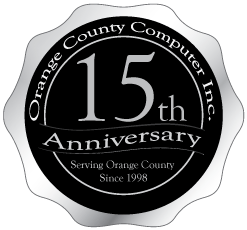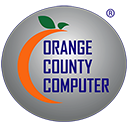Microsoft Windows Support Scam Tries to Strike Again! Acadia Technology is a bogus company.
On December 4, 2013, One of our clients received a call that they were convinced was legit. Lucky for them they thought it would be a good idea for their IT Provider to speak with them so they asked this company to contact us in order to proceed. We knew immediately that it was a total scam. The caller was named “Alex” from Acadia Support in Massachusetts. His company was posing as a Windows Support Company and told us that our computer was at risk. He also said he could help us solve our problem if we gave him our credit card number. We told him we had to call him back and asked how we could get ahold of him. The name of the company was Acadia Technology. I checked out their website, acadiatechnology.com. There is a website made to look like they are legit, however, if you hover over the address you can see that I put up a trial website template that isn’t even secured with an SSL Certificate. A real IT Company would obviously know to put an SSL on their website to make it secure. So once again, Acadia Technology is a fake company. This is how they get consumers to buy into the scam. Their phone number given was (978) 267-3001. Since we had already known about this scam, we immediately reported the phone call to the FBI Cyber-crime division at ic3.gov. Please note that the only company that provides Windows Support is Microsoft and unless you are a Microsoft Partner, you will not be receiving calls from Microsoft. The rest of this post is from our original blog from earlier this year. Enjoy!
For some of you reading this, it might sound like a joke, however, this is not a joke… there was a FTC Crackdown in 6 countries, uncovered a massive international tech support scam that swindled tens of thousands of consumers in six countries. This was called one of the most widespread Internet Scams of the Decade. Microsoft does not call you on the phone to tell you that your computer is at risk!
The FTC shut down a global crime network that tricked tens of thousands of consumers by pretending to be a Microsoft Windows Support provider. 14 different companies and 17 individuals were targeted in the investigation, freezing $188K in assets and that number is expected to increase over time as more nations are assisting in this investigation.
These Microsoft Windows support scams are termed, “scareware”. English Speaking Consumers in the US, Canada, Australia, New Zealand, and the U.K. were targeted in this global scam, and the majority of the cyber criminals were based in India. Now isn’t that where the big hardware giants have outsourced their tech support to as well?
Scammers Fooled Consumers out of Hundreds of Dollars by Granted Remote Access
Cold callers would claim to work for major technology companies, such as Microsoft and Google, telling people that they had viruses on their PCs.
Those who fell prey to their tactics, users allowed the scammers to remotely access their computers, locking them out of their systems while they “FIXED” their machines. This group went as far as placing ads on Google to falsely prove their existence so when skeptical unwitting consumers found them, the “Tech Support” company would appear to be legitimate.
Windows PC users were charged anywhere from $49-$450 to remove malware that did not even exist on their systems. This scam began back in 2009 in Australia and the FTC estimates that hundreds of thousands of U.S. Consumers may have been affected. In Canada, it is estimated that tens of thousands of consumers were affected @ $85 per person.
The scammers also attempted to avoid detection by using virtual offices and over 80 different domain names and 130 different phone numbers. Those operating in India were using US Phone carriers and those carriers agreed to block the numbers.
Microsoft’s Director of consumer affairs and Senior Policy Counsel, Frank Torres, said that they will work with the agencies to identify other scams as they emerge. Frank also said that, Microsoft will never cold call customers and ask for their credit cards to charge them for service they don’t need.
What can you do to protect yourself and your data?
- Do not allow anyone to remotely access your computer unless it is your already established IT Provider.
- Verify that your Wireless Network is secure. Many consumers leave their wireless Internet wide open for anyone to hack in.
- Unless you leave your front door unlocked at night, lock down your Internet access.
- Only use the Internet behind a secure wireless network that requires a passcode to access.
- Password protect important data and access codes
- Install and maintain an updated Client Antivirus for desktop and laptops
- Do not visit websites with expired SSL Certificates, especially US Federal Government sites as they are often targeted by hackers.
- Work with a trusted solution provider – Integrity is a rare trait in business today.
If you feel that your system or network may be at risk, or the security of your system has been compromised contact your local expert security team at Orange County Computer® so we can minimize the damage, via phone (949) 699-6619 or via website OrangeCountyComputer.com. We are happy to help.

Information originally obtained by CNET and ZD NET’s Shara TIbken.
